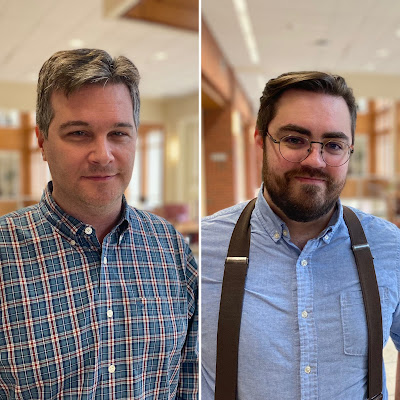Rural Educators Engage in Bioanalytical Engineering Research and Teaching
 Five science
and mathematics teachers from rural schools in Oklahoma just completed the
National Science Foundation-supported summer program at the University of
Oklahoma’s Center for BioAnalysis. The program is designed to improve STEM
teaching in rural classrooms and increase the number of rural students who
select and successfully graduate from a higher education STEM field.
Five science
and mathematics teachers from rural schools in Oklahoma just completed the
National Science Foundation-supported summer program at the University of
Oklahoma’s Center for BioAnalysis. The program is designed to improve STEM
teaching in rural classrooms and increase the number of rural students who
select and successfully graduate from a higher education STEM field.
“Combining
the teaching expertise of the high school teachers with the research expertise
of the faculty creates a powerful synergism for producing innovative and
dynamic science curricula that directly impact current issues pertinent to
rural Oklahoman communities,” said Mark Nanny, director of the Rural Educators
Program and professor of environmental science in the Gallogly College of
Engineering.
Oklahoma
rural educators selected for the 2017 summer program include: Shawn Cusack, Northwestern
Technology Center--Fairview; James Hall, Hydro-Eakly; Patrick King, Geary;
David Martyn, Southwestern Oklahoma State University--Weatherford; and Key Tse,
OU--Norman. The program includes laboratory work, seminars on real-world
applications of bioanalytical engineering, curricula development and design,
and evaluation and assessment activities.
Each
educator is paired with a faculty mentor over seven weeks performing cutting-edge
research in
OU
laboratories. Besides learning research skills, the program also focuses on developing
classroom curricula and transferring research experiences into the classroom. A
workshop on writing successful proposals focuses on rural educators preparing
proposals for their classroom curricula. In the final week, educators present
research activities, classroom curricula and prepare a research poster for
display in the classroom and OU laboratory.
While much
of the current research in bioanalytical engineering focuses on medical
problems, the field is a powerful tool for all areas involving biology, such as
the improved production of biofuels, the impact of biofilms on the biocorro
sion
of steel infrastructure in the petroleum industry and the environmental
bioremediation of groundwater.
Bioanalytical
engineering presents rural educators with a dynamic and vibrant field rooted in
fundamental concepts of molecular biology, biochemistry, cellular biology,
chemistry and physics. Combined with
engineering design methodology and application, it provides opportunities for
educators to enrich their teaching of these fundamental concepts, showing their
students how knowledge in these fields can directly impact critical issues
related to medicine, human health, energy resources and the environment.
Among the research
opportunities available to educators through this program are the design of
personal anti-cancer drugs, environmental engineering, biocorrosion engineering,
biofuel processing, fabrication of bioanalytical devices and advancement of
computational methods. For more information about the program, contact Mark
Nanny at nanny@ou.edu.


